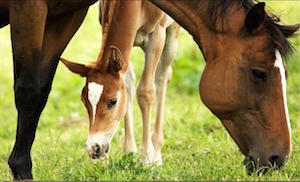Intense video captures skateboarders speeding down a road in the Alps Boys from High Tatra Mountains Travelling the less travelled paths :-)
Online Speed Dating is seen as Cool
Online Speed Dating is seen as Cool
Sales of grey hair dye soar as youngsters ape and Media Dragon George Clooney Telegraph
#HipsterCop uses only organically grown, non-GMO wood billyclubs. He once used chemicals, but now they're passe
Whisky Island 60 Minutes. EM: “This was apparently the last story on which legendary CBS reporter, the late Bob Simon, was working. If it’s yer time, laddy, may as wayll go oot doin’ something ye love, d’ye ken?”
“Someone with a thousand books is someone you want to talk to; someone with a thousand shoes is someone you suspect of belonging to the Kardashian clan. Books are not objects in the same way that shoes are objects.”
One can learn to live without anything, save oxygen, water and other nutrients. Things get more complicated when we consider the quality of such an existence. For some of us, good books, the ones that sustain our interests, are a matter of life, not lifestyle. Of course, this is most vitally true for writers. As Giraldi puts it: “If you aren’t suspicious of a writer who isn’t a bibliophile, you should be...”
Good readers enjoy sharing the wealth. Giraldi quotes an essay by Leigh Hunt,“My Books,” “I entrench myself in my books equally against sorrow and the weather. If the wind comes through a passage, I look about to see how I can fence it off by a better disposition of my movables. When I speak of being in contact with my books, I mean it literally. I like to lean my head against them.” This is good, if a little histrionic. Hunt recalls how C.L. (Charles Lamb) “kiss[es] an old folio,” which verges on fetishistic in the modern sense, and is something I have never been tempted to do, even in the loneliest of my days. Hunt reminds us that no writer is original, none works without forebears:
“It is true, one forgets one's books while writing — at least they say so. For my part, I think I have them in a sort of side-long mind's eye; like a second thought, which is more — like a waterfall, or a whispering wind.”
“If I Had Only One Sermon to Preach.” Chesterton’s essential point is easily stated: “all evil began with some attempt at superiority,” about which he says: “No truth is now so unfamiliar as a truth, or so familiar as a fact.” Chesterton’s formulation is classically Chestertonian:
“Pride is a poison so very poisonous that it not only poisons the virtues; it even poisons the other vices. This is what is felt by the poor men in the public tavern, when they tolerate the tippler or the tipster or even the thief, but feel something fiendishly wrong with the man who bears so close a resemblance to God Almighty.”
